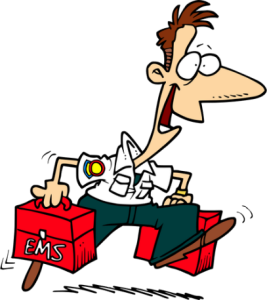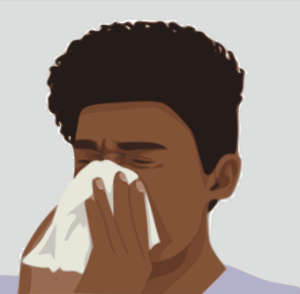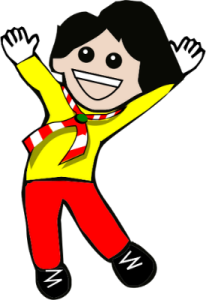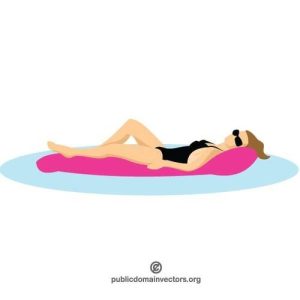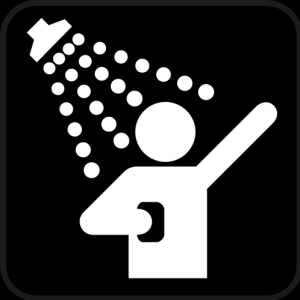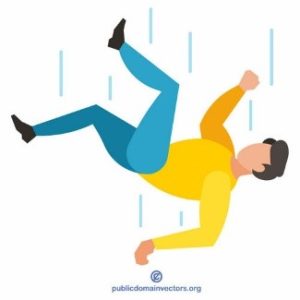4 Kapitel 7-4: Reflexive verbs (accusative)
7-4: Reflexive Verbs (Accusative)
By now, you’ve learned several verbs in the present tense and in the conversational past. In this section, you will learn about reflexive verbs.

What is a reflexive verb? It reflects the action back onto the subject.
Compare the two sentences.
She is washing the dog. VS She is washing herself.


- In the first example, the subject (she) and the direct object (dog) are not the same person. Therefore, this sentence is not reflexive.
- In the second example, the subject (she) and the direct object (herself) ARE the same person. That makes the second sentence reflexive.
In order to be reflexive, the subject and object must be the SAME.
Now let’s look at the same two sentences in German.
Sie wäscht den Hund. VS Sie wäscht sich.
Notice the sich, herself, in the second sentence? That’s a reflexive marker. German uses special reflexive pronouns to mark that a verb is reflexive.
The infinitive form of reflexive verbs will have sich in them.
- sich verletzen—to injure oneself
- sich an·ziehen—to get dressed
- sich aus·ziehen—to get undressed
- sich aus·ruhen—to relax
- sich beeilen—to hurry
- sich erkälten—to get a cold
- sich fühlen—to feel
- sich verspäten—to be late
- sich setzen—to sit oneself down (go from standing to sitting)
- sich freuen—to be happy
- sich baden—to bathe oneself
- sich duschen—to take a shower
Often, verbs that are reflexive in German, may not have a reflexive equivalent, oneself, in English. They’re just reflexive because that’s the way German designed them. (Reflexive verbs in one language never carry over one-to-one in other languages.) You will need to learn the sich with certain verbs in German.
→When conjugating the reflexive verb, put the sich right after the conjugated verb.
Watch Anja’s video to see the difference between non-reflexive ausziehen and the reflexive sich ausziehen.
Ex. A: Was machen die Leute? Beschreiben Sie jedes Bild in einem ganzen Satz. Verwenden Sie dabei Reflexivverben.
Beispiel:
→Sie badet sich. ODER Sie wäscht sich.
Reflexive Pronouns in the Accusative:
German uses reflexive pronouns that change based on the subject. They tend to look a lot like the accusative pronouns that you learned in Chapter 2. You may have noticed that in in Exercise A, the word sich stayed the same. For the other subjects, it may change.
The chart shows how sich will change for each subject.

Click to watch me reteaching this:

Ex. B: Alles über dich! Answer the following questions about yourself in complete sentences.
- Wann ziehst du dich jeden Morgen an?
- Wann badest du dich oder duschst du dich?
- Wann ziehst du dich jeden Abend aus?
- Wo ruhst du dich aus?
- Warum beeilst du dich?
- Wann fühlst du dich glücklich?
- Warum verspätest du dich?
- Wann erkältest du dich?
- Wann freust du dich?
Create Your Own Reflexive:
Many verbs can be made reflexive just by adding sich to them.
- NICHT REFLEXIV: Der Mann liebt die Frau. (not the same person)
- REFLEXIV: Der Mann liebt sich. (the same person)

NICHT REFLEXIV: Der Hund verletzt die Frau. (not the same person)

REFLEXIV: Der Hund hat sich verletzt. (same person)
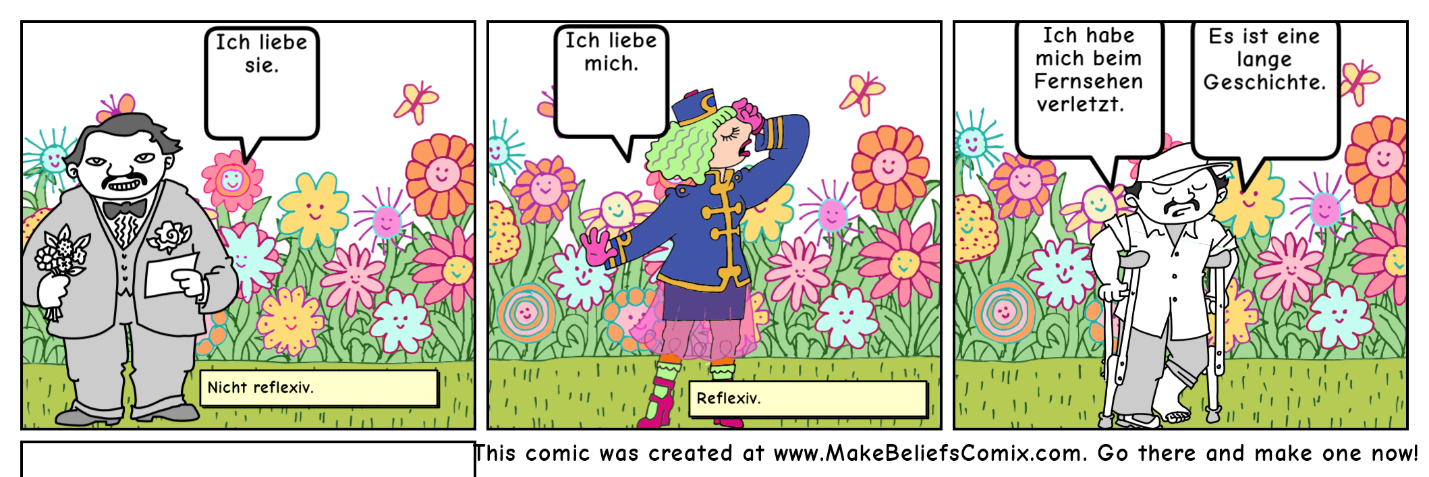
Keep an eye out  for any new reflexive verbs!!!
for any new reflexive verbs!!!
Ex. E: Reflexivverben, Teil II. Rewrite the sentences so that they are reflexive.
- Das Kind hat seinen Bruder verletzt.
- Die Mutter zieht das Kind an.
- Du wäschst das Auto komplett falsch!
- Ich dusche den Hund, weil er wie die Pest stinkt.
- Wir lieben diese Fernsehserie.
- Der Friseur rasiert den Kunden.
- Ich sehe meinen Nachbarn.
- Hörst du die schöne Musik?
Ex. F: Rollenspiel. Sie haben den Unterricht verpasst. Erklären Sie dem Professor, warum Sie gefehlt haben und stellen Sie mindestens drei Fragen.
Ex. G: Rollenspiel. Sie müssen zum Arzt. Rufen Sie an, erklären Sie Ihr Problem und machen Sie einen Termin. Stellen Sie mindestens drei Fragen.
EXTRA PRACTICE with reflexive verbs: (Courtesy of Claudia Kost & Crystal Sawatzky, University of Alberta.)
Ex. H: Der Tagesablauf: Beschreiben Sie Ihre tägliche Routine! Was machen Sie zuerst? Danach? Verwenden Sie viele Reflexivverben! (Hint, listen to Anke’s example from AudioLingua, but add some reflexive verbs to your own.)
Ex. I: Nicos Weg. Episode 13: Wohngemeinschaft. Schauen Sie sich die Episode an und beantworten Sie die Online-Fragen. You will review household chores and the expression seit + dat.

https://learngerman.dw.com/en/wohngemeinschaft/l-38162937
Ex. J: Hausarbeit. Wer macht die Hausarbeit bei Ihnen zu Hause? Welche Aufgaben müssen Sie jede Woche machen? Was gefällt Ihnen? Was nicht? Erläutern Sie!
Ex. K: Nicos Weg. Episode 14: Nachbarschaft. Schauen Sie sich die Episode an und beantworten Sie die Online-Fragen. You will review pronouns in the dative case, which you learned in Chapter 4.

https://learngerman.dw.com/en/nachbarschaft/l-38179300
Ex. L: Die Nachbarn. Beschreiben Sie Ihre Nachbarn. Verstehen Sie sich gut, oder gibt es manchmal Probleme? Erläutern Sie!

